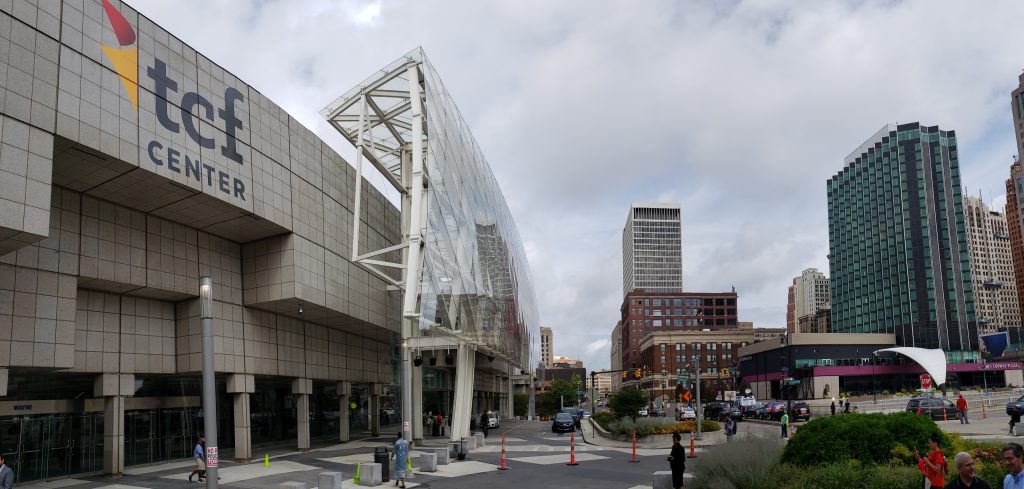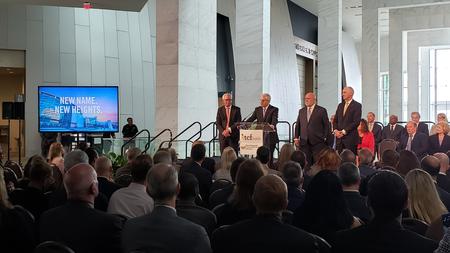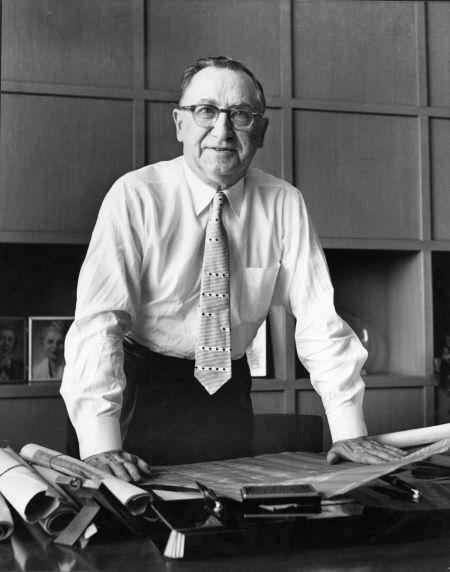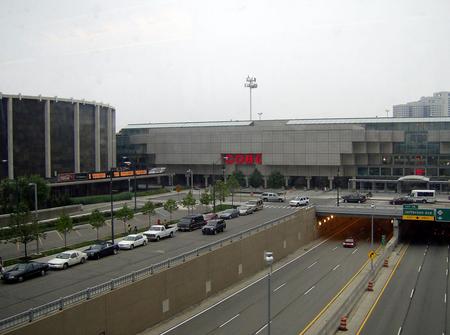Cobo Hall Gets a New Name, Leaving Behind Complicated Racial Legacy
The change marks a small but notable shift in the city’s history, losing a reference to Mayor Albert Cobo, who led Detroit through a segregationist and exclusionary time period in the 1950’s.


The red lettering once mounted on the side of Detroit’s largest convention center is gone. The building once known as Cobo Hall will now be called “TCF Center.”
The change marks a small but notable shift in the city’s history, losing a reference to Mayor Albert Cobo, who led Detroit through a segregationist and exclusionary time period in the 1950’s.
TCF inherited the naming rights through Chemical Bank — the two companies announced their intent to merge earlier this year. While waiting on approval from the Federal Reserve Board, Chemical purchased the facility’s naming rights for $33 million.
“Every sitting president since 1960 has given addresses in these hallowed halls,” says Gary Torgow, TCF Bank Executive Chairman. “The Rev. Martin Luther King Jr., his ‘I Have a Dream’ speech was delivered first [at TCF Center] — 6 weeks prior to his historic deliverance of that speech in Washington D.C.”
The recent finalization of that merger set the stage for the first name change in the convention center’s history.
“This center has been named for an individual who was responsible for policies that moved large numbers of African Americans out of their homes, out of their business with no place to go — in the name of urban renewal.” — Mayor Mike Duggan

The mark Albert Cobo left on Detroit is a checkered one.
While city landmarks like the Spirit of Detroit statue were built during his tenure, he’s also known for passing heavily segregationist housing laws that are widely viewed to have played a role in escalating racial tension ahead of the 1967 riots.
“For the last three years I’ve been pretty vocal about changing the name of this facility,” says Detroit Mayor Mike Duggan. “We need to be honest about some things. This center has been named for an individual who was responsible for policies that moved large numbers of African Americans out of their homes, out of their business with no place to go — in the name of urban renewal.”
Cobo died in office in 1957. His name had adorned the convention center since it opened in 1960.
Politicians say the building’s new name is a better reflection of Detroit’s modern values. Michigan Governor Gretchen Whitmer says that kind of presentation matters when it comes to making a first impression.
“Names conjure up images of character and behavior and helps to identify who you are and what you may stand for.” — Rev. Wendell Anthony
“This is one of those places in Detroit that people come to for the first time when they come to the city,” says Whitmer. “Businesses from around the world have come to this building for a meeting, for an exposition, for an event.”
Officials say that of the roughly 10 million people that visit Detroit every year, 1.5 million of them visit the TCF Center.
Rev. Wendell Anthony is President of the Detroit Branch of the NAACP. He says the TCF Center’s former name didn’t send the right message.
“Names conjure up images of character and behavior and helps to identify who you are and what you may stand for,” says Anthony. “The name Cobo was not one which brought to this convention center a level of respect and appreciation for all Detroiters.”
Anthony says the name change signifies a new chapter for the venue and the city.
TCF Banks will now hold the naming rights to the conference center for the next 22 years.

